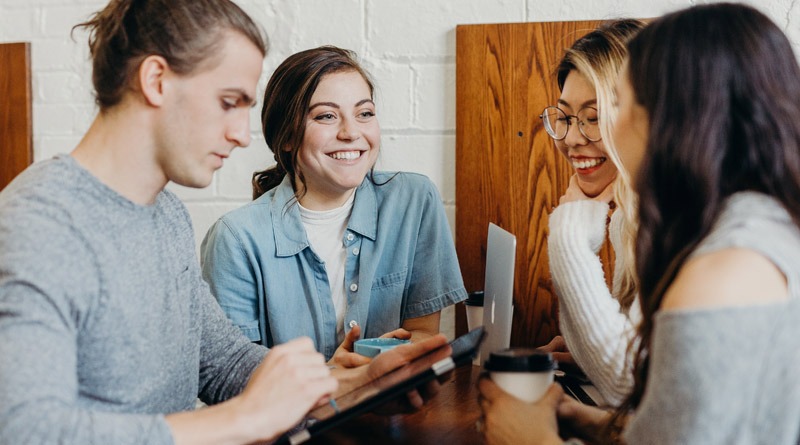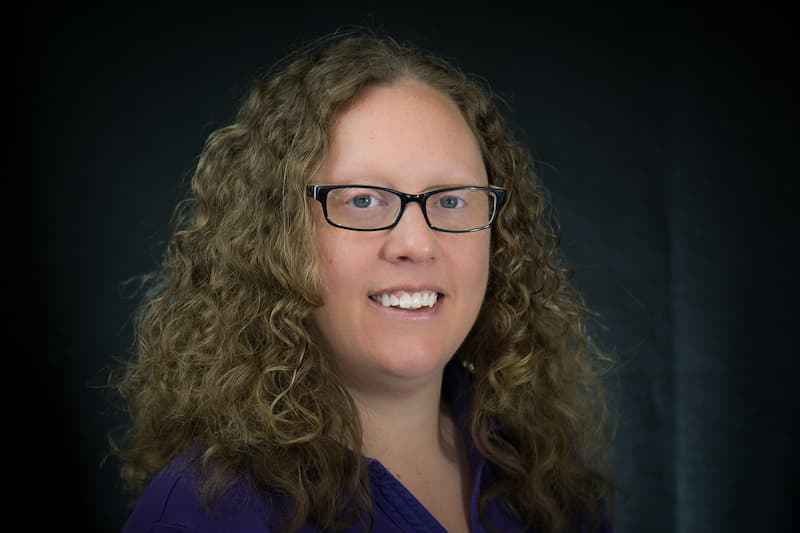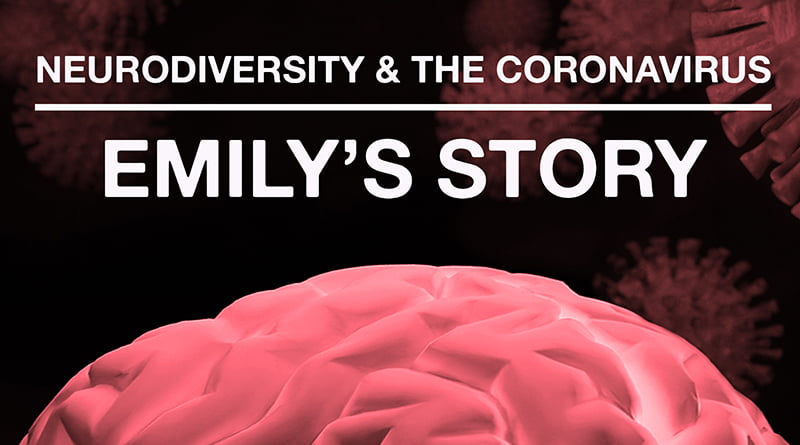
The Importance of Peer Groups in The Autism Community
By Katie Oswald, Executive Director, Full Spectrum Agency for Autistic Adults
The Value of Autism Peer Groups
When I was diagnosed with autism as an adult, I wanted to learn everything I could about being autistic. I consumed all the information I could through books, blogs, YouTube videos, and social media, but something was missing. I didn’t have the human connection that comes with a peer group.
After searching for a peer group for autistic adults in my area and coming up with nothing, I decided to start a group of my own. I started my group on the Meetup platform and had low expectations for turnout because there are so many meetup groups, and only a small proportion are well attended.
I was pleasantly surprised to have more than 10 people at our first meetup. Over the next few months, our group expanded rapidly, in both number of members and events. I knew I had found an unmet need and it didn’t take long to understand why. The stories I heard from my peers were of social isolation, anxiety, and an overwhelming sense of not belonging.
A peer support group provides a place for people to belong. A network of peers who are there for each other, to listen to each other’s struggles, celebrate our successes, and relate in a way that none of us have experienced outside of our group. This is a place where people can come as they are, be their true selves, and even start friendships. For those trying to pass as neurotypical in society, it is an opportunity to drop the mask. Some have even described it as a lifeline.
I founded the nonprofit Full Spectrum Agency for Autistic Adults to help support our expanding programs and advocacy work. All are welcome to join us, whether they are diagnosed, self-identified, or simply exploring these aspects of their identity for the first time. We are open to folks with any level of support needs and do our best to be inclusive of each individual. Our policy is, everyone deserves and needs a peer group, and if they feel they belong with us, they belong with us.
What exactly is it that makes a peer support group for autistic and other neurodivergent adults so important and so special? I think that information could fill a book, but I see three primary categories of benefits.
- Reduced isolation
- Dropping the mask
- Community building and friendship
Reduced Isolation
I spoke about the social isolation I hear about and see in our group members when they start coming to our events. For many, I’ve watched this isolation gradually lessen over the last few years. Feeling like you are the only one experiencing life a certain way, and that no one understands, is isolating for anyone. It makes you feel alone. When you are a member of a stigmatized group whose individual members struggle to establish and maintain close relationships, this feeling is amplified.
When we come together in our group to share experiences, and realize they truly are shared experiences, that is a powerful moment. The moment looks something like this.
- An individual shares a life experience
- One or more group members nod and give knowing looks around the room
- The individual is initially skeptical that anyone could possibly understand
- A group member shares an anecdote from their life to demonstrate a shared experience
- The individual realizes that, yes, someone actually does understand, and they are overcome with hope and joy. Sometimes they cry tears of joy.
I’ve had the good fortune to see moments like this on a regular basis. They are beautiful moments and I have been moved to tears by them myself on occasion.
Dropping the Mask
…and all the negative mental health outcomes that come with it. You may not think masking our autistic traits is a big deal. After all, everyone masks, right? Most people do it to some extent at work, at networking events, and basically anytime they are in a group of people they don’t know well.
The difference is most people gradually drop the mask over time. As you get to know new co-workers, start to make connections at the networking event, and get more comfortable in your surroundings, the mask can come off.
Some autistic people never drop the mask in public, and some even have to mask their true personality at home. This means some people are masking almost 24/7, and are only being their true self when they are alone. This not only costs a ton of mental energy but has been shown to contribute to negative mental health outcomes for autistic people.
The negative outcomes we see most frequently in the autism community that have been at least in part attributed to masking, include:
- Higher rates of depression and anxiety
- More frequent PTSD symptoms
- More frequent suicidal ideation
- Higher rates of suicide
- Autistic burnout
If these horrible outcomes are even in small part due to masking, we need to allow autistic people to drop the mask. Providing peer support can help, although my hope is that there will be more opportunities for us to drop our mask in society, too.
The fear of stigma and discrimination is strong, especially for those with trauma from past experience, but peer support group can help foster a more positive sense of self. By experiencing the “strength in numbers” of a group of people who share similar experiences, individuals can start feeling stronger, and some may be encouraged to take the risk of being themselves in public spaces.
Community building and friendships
Something I noticed a couple years into the group is that members began reaching out to each other outside of the meetings and also volunteering to lead events themselves.
We have a network of over 500 members, some more active than others, who get together outside of meetings and are developing friendships. The experience of making friends is familiar for some, and a first-time experience for others. I have had people share that they have never had a friend in their life before joining our group.
We’ve also had situations of conflict between members, which is an inevitable part of relationships. With that conflict comes an opportunity to learn about boundaries. Many of us are conflict averse because conflict creates a high sensory situation. I’ve found that the silver lining in these conflicts is in that opportunity for people to learn first what their boundaries are, then how to communicate them, and finally how to enforce their boundaries when necessary.
Our members are leading field trips, walks, dinners, potlucks, and game nights. It’s truly become a community. I’m so happy that our members have become comfortable enough with each other that they feel confident in leading events.
Many members are also passionate about sharing resources that will help other members. We started a private Facebook group as well as a shared Google Drive folder for sharing resources like book lists, tip sheets, spreadsheets of trusted mental health professionals, etc.
This is the kind of mutual support that folks tend to take for granted if they have always had one or more peer groups to belong to, such as a club, team, or church. This is not something that is guaranteed to all of us, and it comes easier for non-stigmatized groups. It can be much more difficult for minority groups to find a community that provides mutual support, and that can make the world a much scarier place.
Start a peer support group of your own!
It seems like something that creates this much value would be difficult to launch and grow, but it’s astonishingly simple. It takes just a little bit of time and effort, as little as a few hours each month if that is what you have to give, to add so much value to so many lives.
I chose to expand my efforts and do more advocacy work by launching my nonprofit, but that is not a requirement. It can be as simple as hosting an occasional event in your community. If you aren’t very comfortable facilitating, start with social events like museum trips and picnics. You can start small, and when your community members feel empowered to lead, they can support the group by hosting events, as well. When everyone does a little bit to support their peers, it makes us all stronger.
I also want to encourage anyone interested in leading events or starting their own peer group to contact me. I’m happy to provide guidance, whether you are interested in starting a Full Spectrum Agency chapter in your region, or if you want to do something separate. The important thing is that we are all doing what we can to help support our autistic community and the greater neurodivergent community.

Katie Oswald is a nonprofit founder, facilitator, and autistic self-advocate. She founded Full Spectrum Agency for Autistic Adults in 2018. Through Full Spectrum Agency, she facilitates peer support groups, discussion groups, and many other programs for over 500 autistic group members. Katie partners with organizations in Michigan to teach sexuality education, social and communication skills for relationships, and self-determination. She also advocates for autistic adults through corporate workshops, conferences, and community presentations. An avid traveler, Katie learned the majority of her self-advocacy and leadership skills through world travel. She has visited 17 countries on all seven continents, including two years in Uganda with the U.S. Peace Corps. For more about Full Spectrum Agency for Autistic Adults: www.FullSpectrumASD.org and https://www.meetup.com/Ann-Arbor-Autistic-Adults/




